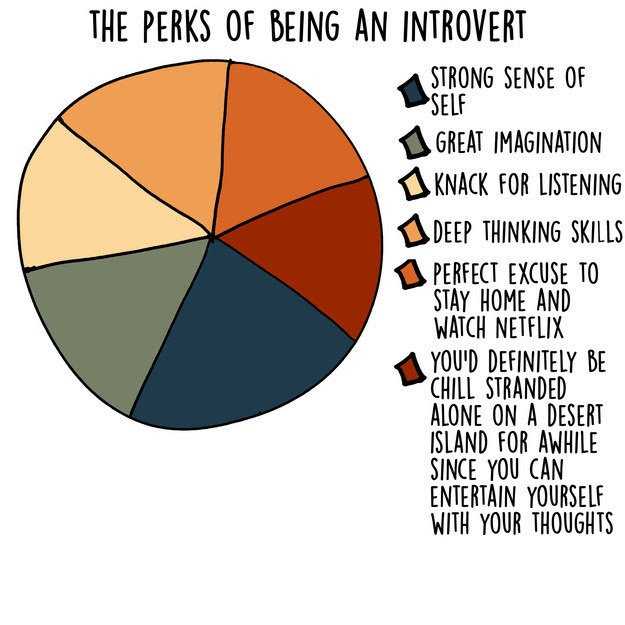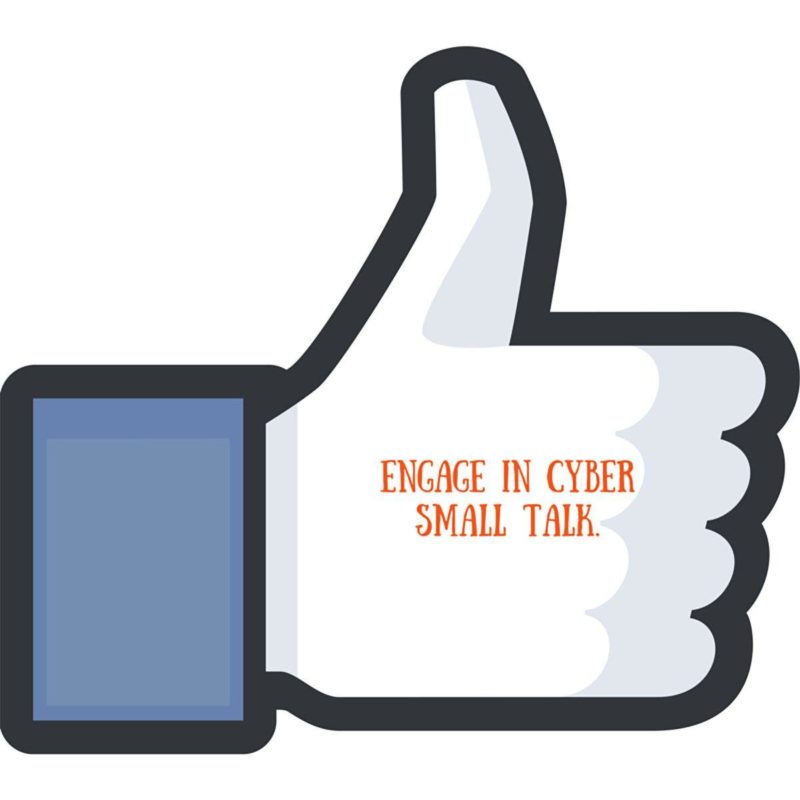Shy doesn’t mean you are an introvert just as outgoing isn’t the same as extraversion. Intelivate explains why and gives you seven ways to be more assertive!
If I were given a kitten every time someone said to me,
“You are SO not an introvert!”
I would have enough cats to end up on a reality show of my very own. For real.
I am a misunderstood, outgoing introvert who has been in a leadership role for most of my career.
People assume that extraversion is a requirement for leadership. People also think that being an introvert means that you don’t work well with others, or you don’t have the desire to get ahead or that you like to work in the dark with a full wardrobe of hoodies and matching earbuds to block out the world around you.
Introversion vs. Extraversion
An introvert and extrovert walk into a crowded room together (yes, it sounds like the start of a great joke). They split the crowd in half and spend the day facilitating a session. Both of them leave exhausted, but with different types of exhaustion.
While facilitating, the introvert is just as outgoing. What happens is the introvert is giving energy to people in the meeting. He MUST recuperate for the next day to perform just as well.
The facilitator who exhibits extraversion is also outgoing. When she is facilitating, she is taking energy from people. Sounds counterintuitive to what you know about introversion vs. extraversion.
Extraversion is fueled by the energy of people around. She goes to recuperate feeling an energizing exhaustion and still needs alone time. Why? Extraversion can cause people fatigue.
Is one better than the other? In absolute terms – no. It is important to know which one you are, how you push and pull energy with people and what you need to recuperate from either.
The Art of Listening
Introverts are excellent listeners. Being a good listener – to hear people – is difficult. I will never forget a valuable lesson a mentor took me through early in my career. I spent several years volunteering at a non-profit group where listening was the key to success with our clients.
My mentor taught me to empty my thoughts and only focus on what a client was saying to me – like actually saying and using all of my senses – and not formulate my responses or offer opinions or devise solutions on how to fix things in my head while a person is talking. It was tough at the time, however honing that craft after all of these years is the center of my introversion and my success as a leader.
Most of the successful people I’ve known are the ones who do more listening than talking.– Bernard Baruch
The next time you are in a meeting, and someone is pitching you an idea, don’t think about all of the responses to why something or someone will or won’t be successful.
Listen to the words, the passion, the emotion, observe the body language, the tone, the details, the facts around what they are saying. Don’t stop or interrupt them.
It is harder than you think.
Introverts tend to lead inward which makes them notice the small things that we all know can be bigger than they appear.
In the book “Quiet” by Susan Cain, she states that
“Introverts may have strong social skills and enjoy parties and business meetings, but after a while wish they were home in their pajamas.”
Preach, sister!
Social Time Often Needs Recovery Time
Introverts love us some social time. We are often very outgoing. When we are done, we are so done.
We often accept invitations to events and then when that day comes, we wish we hadn’t committed. Not because we don’t want to be with you, but that we crave recharging time.
Our energy levels aren’t fed by the noise, people, events like extroverts are. Most introverts I know – even the outgoing ones- have created amazing blanket forts and routines for rejuvenation.
Cain also goes on to say,
They prefer to devote their energies to close friends, colleagues, and family. They listen more than they talk, think before they speak and often feel as if they express themselves better in writing than in conversation. They tend to dislike conflict. Many have a horror of small talk, but enjoy deep discussions.
As a business leader, this is what makes us successful. We pay attention to the details, prefer to work in solitude and complete work assignments very deliberately, taking in all of the factors: stakeholders, risks, milestones, tasks, resources – more of a big-picture approach.
People who exhibit more extraversion tend to lend more risk and attacks assignments more quickly. Outgoing introverts have to “thought process” it all before we hit ‘start.’
Because of this approach, introverts often are branded as “thinkers” because we can be in our heads. A lot.

The World Never Stops. Ever.
It can be loud and noisy and exhausting for introverts. People with extraversion tend to thrive in this environment – but introverts, not so much.
Social media, 24-hour news cycles, the interwebs, big cities, demanding careers – the constant noise is just too much. If we close our office doors, prefer to lunch alone, don’t reply to texts or answer phone calls right away, it is often that we are either focused on the task at hand or recharging in our ways.
We still love the invitation but don’t take it personally if we don’t attend or don’t stay long. If we cancel plans or change our minds, it (usually) has nothing to do with you. It doesn’t mean we aren’t outgoing.
In meetings, if we aren’t quick to collaborate or agree, it is because we are taking it all in and processing – it doesn’t mean we don’t agree or don’t support you.
As your leaders, we are fantastic listeners and allies; we will push you to think deeply, and we are innovators.
I have to be alone very often. I’d be quite happy if I spent from Saturday night until Monday morning alone in my apartment. That’s how I refuel.– Audrey Hepburn
In business as in life, it takes all kinds to create a successful team. Embrace and empower these differences. Play off of your team’s strengths and weakness, the listeners vs. risk takers – that employee who is your taskmaster but might be satisfied just in that role and gets work done.
Find a mix of introversion and extraversion and use their strengths to your advantage.
Celebrate them, educate them, partner with them – you will create an amazing, well rounded, passionate organization that will get things done and move forward in the business as team with huge success.
Embrace it, own it and lead with it.
Sometimes We Need to Be More Assertive
Research has shown that corporate introverts – to the tune of four out of five introverts – believe that those with extraversion traits advance in the workplace at a higher rate. If you are outgoing and assertive, you’ll get the promotion.
Challenges stemming from introversion – tendencies to undersell themselves, not speaking up or speaking their minds, and small social networks – all contribute to an introvert feeling misunderstood and marginalized.
The same research has suggested that 40% of introverts would like to be more assertive and outgoing.
Introverts are hardwired to internal processing, privacy, and stoicism. So while often mistaken for shyness, wherein anxiety or fear is circumstantial, introversion is a hardwired personality orientation that still boasts incredibly successful benefactors.
Think: Bill Gates and Warren Buffett.
Below are seven steps for introverted leaders to dip your toe in the extraversion waters, while never losing the best part of you – your introversion!
7. Preparation Prevents Perspiration.
If crowds and meetings are not your happy place, always be prepared; don’t expect yourself to be social on-the-fly. Plan ahead for possible questions, potential answers and be sure to take the time to refuel your social reservoir.

6. Introverted Leaders – Speak Now!
Remember the value of ‘managing up.’ People get busy; people get distracted. Learn to be your most vocal advocate and take the time to proactively and preemptively share information, updates or news about your successes in business.

5. Not All Communications Are Created Equal.
While we all have days we would prefer to hide behind our phone screens and monitors, be sure to recognize that each medium should match the levity – or gravity – of each message. You do not call to borrow a stapler; you do not text to fire someone.

4. Engage In Cyber Talk.
Just as comedians and bands have opening acts, use social media to warm your ‘audience.’ By connecting with them online, introducing yourself and peppering in hints about your interests or goals, you disarm people with a gentle approach – that is also assertive.

3. Get Loud(-ish).
It may not always be comfortable, but make concerted efforts to speak up at work. Set a goal of talking in a meeting within the first five minutes to establish yourself as a contributor and an engaged participant. The longer you wait, the harder it will seem. Make sure what you say adds a positive contribution. Never be the one that speaks to just ‘speak.’

2. Be Bold.
As an introvert, it is easy to be railroaded in a group or one-on-one conversations but fear not. A simple hand gesture – a ‘stop’ or ‘timeout’ signal – is a non-verbal reminder for an extrovert to take a breath – and simply interject, ‘I’d like to say something.’

1. Resist R.B.F.
Not all ‘resting faces’ are created equal and if your introversion is compounded by an expressionless face – or worse, R.B.F. – a smile can go a long way to remind your audience that you are engaged, interested and approachable.

So being an introverted leader in business can work to your advantage if you embrace it. Jennifer B. Kahnweiler, Ph.D. further offers a wealth of information on introverted leadership in her upcoming book, ‘The Genius of Opposites: How Introverts and Extroverts Achieve Extraordinary Results Together.’
Moreover, having worked with thousands of leaders and executives, one of the biggest struggles that Intelivate sees is when leaders try to be something they are not – thus losing themselves and their authenticity.
They begin to lose what was the core of their career skyrocketing – themselves. Powerful and influential leaders stay true to themselves. It’s essential-Kris Fannin, CEO & founder of Intelivate.
Just as with any new or learned behavior, practice makes perfect … and a more natural, organic social demeanor. With a little preparation, training, and trust in yourself, an introvert can level a corporate playing field of extroverts.



